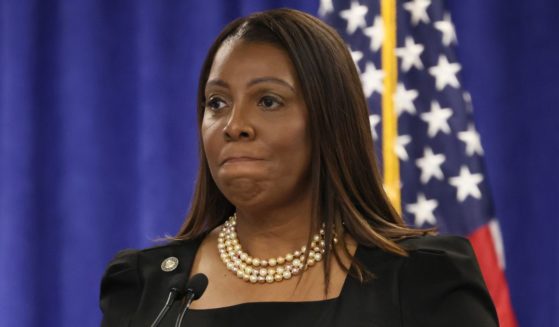House Moves One Step Closer to Punishing Rashida Tlaib
The House is headed for a showdown vote Wednesday on whether to punish Democratic Rep. Rashida Tlaib of Michigan for her rhetoric about the Israel-Hamas war.
A vote on whether to censure Tlaib, a punishment one step below expulsion from the House, advanced Tuesday in a procedural vote. Republican Rep. Rich McCormick of Georgia proposed the censure resolution in response to Tlaib’s promotion of antisemitic rhetoric.
“It’s a shame my colleagues are more focused on silencing me than they are on saving lives, as the death toll in Gaza surpasses 10,000,” Tlaib said in a statement. “Many of them have shown me that Palestinian lives simply do not matter to them, but I still do not police their rhetoric or actions.”
The censure push sets the stage for a dramatic vote on the House floor amid the political tensions over the ongoing, deadly Israel-Hamas war. While the majority of both parties have historically stood firmly on the side of Israel, divisions have emerged in the Democratic Party since the outbreak of the war.
Some on the left have criticized President Joe Biden’s stance and urged him to put conditions on U.S. support for Israel as their aggressive military campaign drives the Palestinian death toll higher by the day.
While the vote against Tlaib will take place against an extraordinary backdrop, the push to censure her is part of a growing pattern in the House.
Censure had long been viewed as a punishment of last resort, to be triggered only for the most egregious wrongdoing. But censure resolutions are quickly becoming routine in the chamber, often wielded in strikingly partisan ways. While the censure itself carries no practical effect, it leaves a historic footnote that marks a lawmaker’s career.
A second resolution by Rep. Marjorie Taylor Greene of Georgia to censure Tlaib had also been scheduled for a procedural vote late Tuesday night. Both of the censure resolutions are “privileged,” which is a procedural tool lawmakers can use to bypass leadership and committees and force votes in the House.
Tlaib, who is one of two Muslim women in the chamber, has long been the target of Republican attacks for her critical views of Israel’s government and its treatment of Palestinians in the region.
That criticism reached new heights after the Oct. 7 attack by the terrorist group Hamas that left hundreds of Israelis dead and scores injured. Tlaib, who has family in the West Bank, came under heavy criticism after she failed to immediately condemn Hamas after the attack.
Shortly after, Greene introduced a resolution accusing Tlaib of “antisemitic activity” after she voiced concern over America’s continued role in supplying arms to Israel as it engages in a bloody battle with Hamas.
Greene also accused Tlaib of “leading an insurrection” in the Capitol complex when she participated in a pro-Gaza rally organized by Jewish advocacy groups last month.
The House voted against moving forward on that initial censure resolution last week, with 23 Republicans joining all Democrats in voting the table the measure. The broad bipartisan support came after both parties raised concerns about violating Tlaib’s First Amendment rights.
The Western Journal has reviewed this Associated Press story and may have altered it prior to publication to ensure that it meets our editorial standards.
Truth and Accuracy
We are committed to truth and accuracy in all of our journalism. Read our editorial standards.












